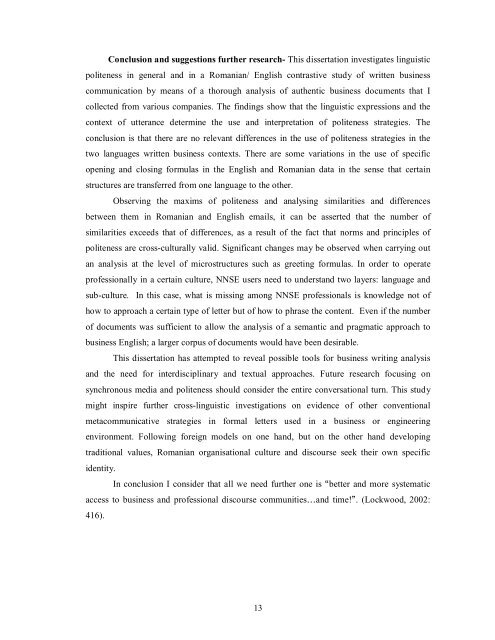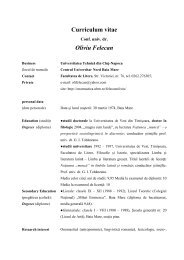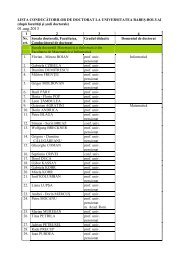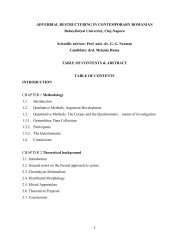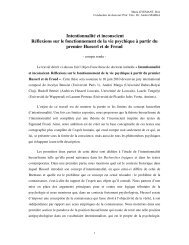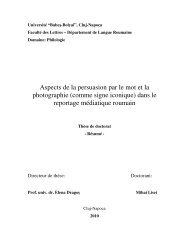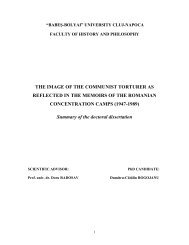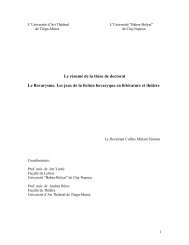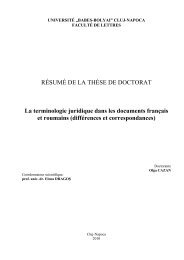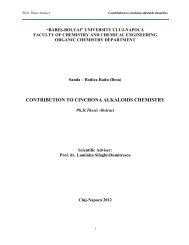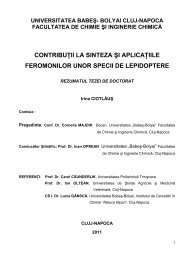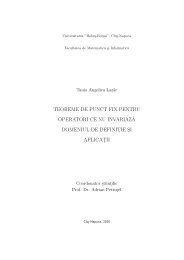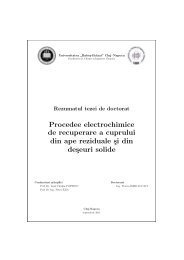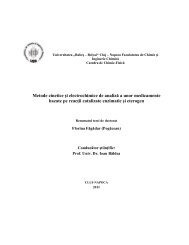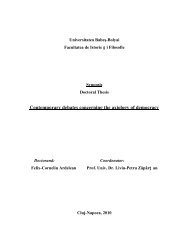1 UNIVERSITATEA “BABES –BOLYAI” CLUJ-NAPOCA ...
1 UNIVERSITATEA “BABES –BOLYAI” CLUJ-NAPOCA ...
1 UNIVERSITATEA “BABES –BOLYAI” CLUJ-NAPOCA ...
Create successful ePaper yourself
Turn your PDF publications into a flip-book with our unique Google optimized e-Paper software.
Conclusion and suggestions further research- This dissertation investigates linguistic<br />
politeness in general and in a Romanian/ English contrastive study of written business<br />
communication by means of a thorough analysis of authentic business documents that I<br />
collected from various companies. The findings show that the linguistic expressions and the<br />
context of utterance determine the use and interpretation of politeness strategies. The<br />
conclusion is that there are no relevant differences in the use of politeness strategies in the<br />
two languages written business contexts. There are some variations in the use of specific<br />
opening and closing formulas in the English and Romanian data in the sense that certain<br />
structures are transferred from one language to the other.<br />
Observing the maxims of politeness and analysing similarities and differences<br />
between them in Romanian and English emails, it can be asserted that the number of<br />
similarities exceeds that of differences, as a result of the fact that norms and principles of<br />
politeness are cross-culturally valid. Significant changes may be observed when carrying out<br />
an analysis at the level of microstructures such as greeting formulas. In order to operate<br />
professionally in a certain culture, NNSE users need to understand two layers: language and<br />
sub-culture. In this case, what is missing among NNSE professionals is knowledge not of<br />
how to approach a certain type of letter but of how to phrase the content. Even if the number<br />
of documents was sufficient to allow the analysis of a semantic and pragmatic approach to<br />
business English; a larger corpus of documents would have been desirable.<br />
This dissertation has attempted to reveal possible tools for business writing analysis<br />
and the need for interdisciplinary and textual approaches. Future research focusing on<br />
synchronous media and politeness should consider the entire conversational turn. This study<br />
might inspire further cross-linguistic investigations on evidence of other conventional<br />
metacommunicative strategies in formal letters used in a business or engineering<br />
environment. Following foreign models on one hand, but on the other hand developing<br />
traditional values, Romanian organisational culture and discourse seek their own specific<br />
identity.<br />
In conclusion I consider that all we need further one is better and more systematic<br />
access to business and professional discourse communities and time!. (Lockwood, 2002:<br />
416).<br />
13


